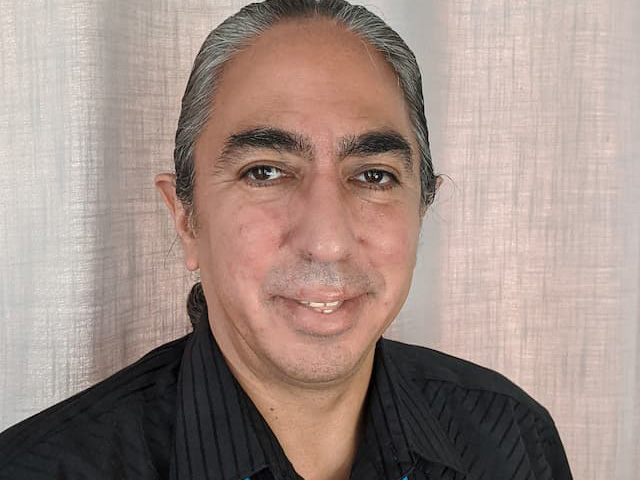
In observance of Native American Heritage Month, Samford University's Howard College of Arts and Sciences Departments of Geography and Sociology and Biblical and Religious Studies and the Office of Student Success and Diversity present "Mark Charles: My Journey to Follow Jesus as a Navajo Man," on Monday, Nov. 13, at 5 p.m. in Harry's Coffeehouse.
Reverand Mark Charles, scholar, activist, author and pastor, co-authors Unsettling Truths: The Ongoing, Dehumanizing Legacy of the Doctrine of Discovery with Soong-Chan Rah and the Robert Boyd Munger Professor of Evangelism at Fuller Theological Seminary. As a collaborating partner with the Calvin Institute of Christian Worship, Charles works with tribes and indigenous communities in the U.S. and worldwide to preserve indigenous cultures, languages, world views and educational models.
Charles is dedicated to educating people about the complexities of American history related to race, culture and Christendom to help forge a path toward healing and reconciliation. His talk will address how Christians today can approach painful history and legacies with the radical Jesus of the Gospels.
The Office of Student Success and Diversity will host a lunch-and-learn with Charles on Tuesday, Nov. 14, giving faculty the opportunity to hear his personal story and learn more about his work during his talk titled Unsettling Truths: Abraham Lincoln & the Doctrine of Discovery. Register here.
The Monday evening lecture is free and open to the public, and students attending will also receive convo credit.
“The Department of Geography and Sociology, along with the Office of Student Success and Diversity and the Department of Biblical and Religious Studies, are excited to welcome Mr. Charles to Samford,” Geography and Sociology professor Theresa Davidson said. “I think students and faculty will find his personal story engaging and his scholarship compelling. In the spirit of academic inquiry, diverse perspectives, and spiritual growth, we hope his visit will stimulate dialogue and reflection about our shared history and responsibility to each other. Moreover, we should take any opportunity to center Indigenous perspectives, scholarship, and worldviews.”
